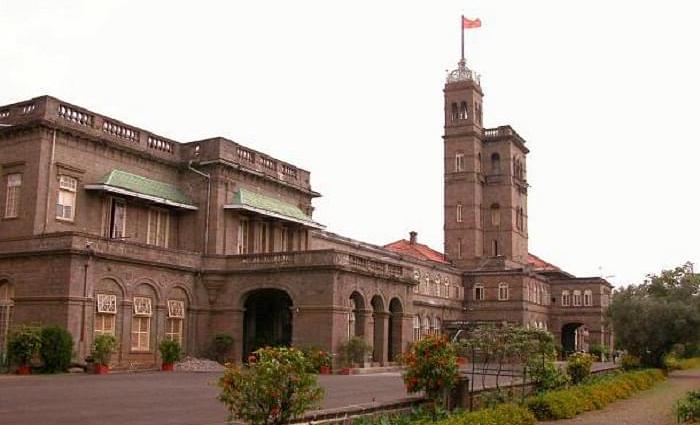
The Department of Pali and Buddhist Studies at Savitribai Phule Pune University (SPPU) in Pune, India, has published a Dictionary of Buddhist Terms, a multilingual dictionary with Pali headwords as the basis. The dictionary gives translations into English, Sanskrit, and Tibetan, all in Roman script, along with their respective textual attestations for scholars of comparative Buddhist studies.
The Indian Express newspaper reported with the release of the dictionary’s third fascicle on 9 March that the Dictionary of Buddhist Terms would eventually grow into a volume of 50 fascicles. The first and second fascicles were published last year. The publishers also plan to add Chinese-language definitions, which, they say, will make the Dictionary of Buddhist Terms the only multilingual dictionary of its kind.
“We will be soon adding the Chinese language in the project and are in search of a suitable scholar to collaborate,” said Mahesh Deokar, professor and head of the Department of Pali and Buddhist Studies. “Besides, we are considering having this dictionary in Devanagiri and Tibetan scripts.” (The Indian Express)
Prof. Deokar, along with Dr. Lata Deokar, Snehal Kondhalkar and Prof. Maheshwar Singh Negi, started the Dictionary of Buddhist Terms project two years ago. The linguists stated that the dictionary would eventually be expanded to encompass the entire Pali alphabet.
Each fascicle contains 100 words, with three fascicles published so far containing a total of 300 words beginning with the letter “A.” In the upcoming fascicle, at least 300 more words will be added.
“The book aims to simultaneously be used in tracing the changing meanings of Buddhist terminologies across space and time,” SPPU said in a statement. “Besides, it may reveal both the common and unique vocabularies used in Pali and Sanskrit Buddhist traditions.” (The Indian Express)
The Dictionary of Buddhist Terms is intended to serve as a guide for academics conducting comparative studies on various Buddhist traditions, using Pali, Sanskrit, and Tibetan as the primary languages.

SPPU vice-chancellor Prof. Nitin Karmalkar, who has worked extensively in Ladakh and has interacted with Buddhist monks for surveys and research, said that he believed that the dictionary had the potential to bring to the attention of scholars literary works in the Tibetan language that are currently hidden within the many monasteries in Ladakh.
Prof. Prasad Joshi, vice-chancellor of Deccan College and a Sanskrit scholar, noted that the Dictionary of Buddhist Terms project is making significant contributions to the field of lexicography. For some years, Prof. Joshi has also been working to compile a Sanskrit dictionary.
“World over, there are not many ongoing lexicography projects, and dictionary compilation is a long-drawn process. We need to train more lexicographers and stop this art from dying out,” said Prof. Joshi. He added that a digital edition of the Dictionary of Buddhist Terms would be made available to researchers around the world. (The Indian Express)
Deshana, an Institute of Buddhist and Allied Studies, and the Khyentse Foundation launched this multilingual dictionary project in June 2020.
The Department of Pali and Buddhist Studies, then known as the Department of Pali, was established in July 2006. Prior to its establishment, courses in Pali and Buddhist Studies were taught in the Department of Sanskrit and Prakrit Languages. The Department of Pali and Buddhist Studies is the only location under the jurisdiction of SPPU where students can study Buddhist literature in Pali, Sanskrit, and Tibetan, from basic to advance levels.
Read more
Department of Pali and Buddhist Studies (SPPU)
SPPU’s dictionary to have 50 fascicles; Chinese to be added (The Indian Express)
SPPU to release multi-lingual dictionary for comparative Buddhist studies Wednesday (The Indian Express)
Related news reports from BDG
India Aims to Become Buddhist Studies Hub
Three New Caves Discovered at Ancient Buddhist Site Near Nashik, India
Institute of Buddhist Studies to Become a Member of the Graduate Theological Union
84000 Founds Assistant Professorship in Buddhist Studies at the University of Toronto
Simpson College Adds Buddhist Studies Professor Thanks to Robert H. N. Ho Family Foundation Grant














